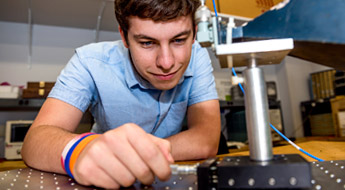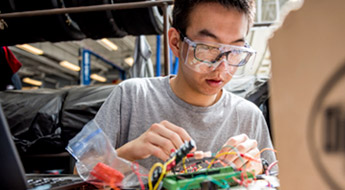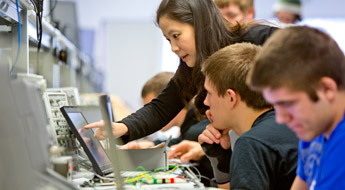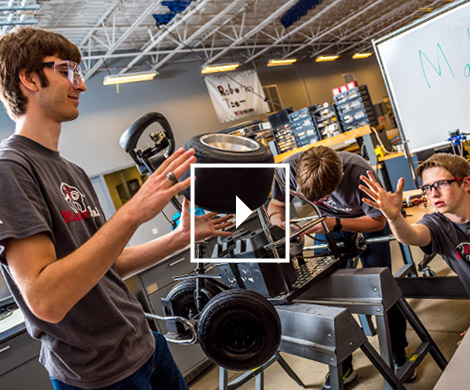Hands-On Learning
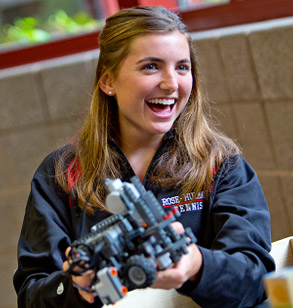
Hands-on Labs
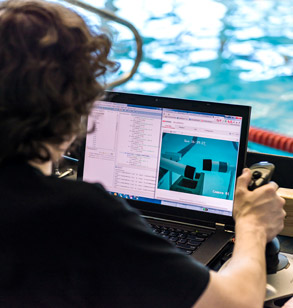
Faculty-Student Projects
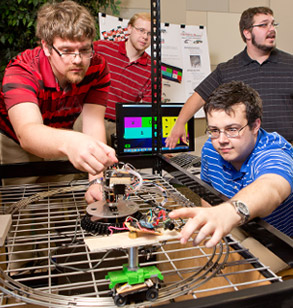
Design throughout the curriculum
Department News
Learn about the latest happenings, student projects, and more in electrical and computer engineering a Rose-Hulman.
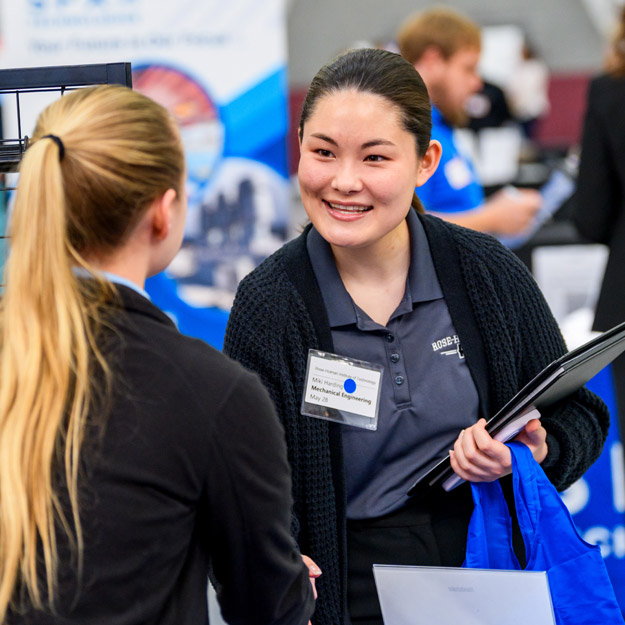
Chilly Winter Career Fair Opens Hot Job Opportunities for Students

Building New Infrastructure: Summer Internship Series 2025
"The people who are crazy enough to think they can change the world are the ones who do.
Majors & Minors
We offer majors, minors, and a double major in Computer Science and Software Engineering. You can also major in International Computer Science, involving a year in Germany.
Bachelor of Science in Electrical Engineering
 Have you ever wondered how your cell phone works? Have you had an MRI or CT scan and wondered how that works? Are you curious about where your electricity comes from or how to create alternative energy? How does YouTube handle thousands of uploads every minute? How does a hoverboard keep you upright? Will electric cars replace the internal combustion engine? If you've ever asked these or similar questions, you might want to be an electrical engineer!
Have you ever wondered how your cell phone works? Have you had an MRI or CT scan and wondered how that works? Are you curious about where your electricity comes from or how to create alternative energy? How does YouTube handle thousands of uploads every minute? How does a hoverboard keep you upright? Will electric cars replace the internal combustion engine? If you've ever asked these or similar questions, you might want to be an electrical engineer!
Areas of Concentration
All ECE students are required to take three advanced electives in either electrical or computer engineering or computer science. You can also use other electives to further specialize your degree. You'll have several options, including power systems, communications systems, computer architecture, computer security, control systems, electromagnetics, embedded systems, internet-of-things and more. You may also qualify to take advanced electives in computer science or software engineering.
Bachelor of Science in Computer Engineering
 Have you ever wondered how computers keep getting smaller, yet more powerful? Have you wondered how computers can be protected from cyber-attacks? Have you asked yourself how tiny biometric devices, such as fitness trackers, actually work? How does the internet work? Where is artificial intelligence taking humanity? What is cloud computing and how does it work? If you've ever asked these or similar questions, you might want to be a computer engineer!
Have you ever wondered how computers keep getting smaller, yet more powerful? Have you wondered how computers can be protected from cyber-attacks? Have you asked yourself how tiny biometric devices, such as fitness trackers, actually work? How does the internet work? Where is artificial intelligence taking humanity? What is cloud computing and how does it work? If you've ever asked these or similar questions, you might want to be a computer engineer!
There are many things I can say about the wonderful faculty and academics in the CSSE department, but what's most important to know is that you leave feeling like you were a part of a family. All of the faculty take a genuine interest in the students, regarding not only each student's education but also their lives in general.
Where Innovation Meets Application
The Branam Innovation Center is a hub of activity for student teams, humanitarian design projects and other opportunities for hands-on work. Find out more about the one-of-a-kind collaborative environment at the BIC.
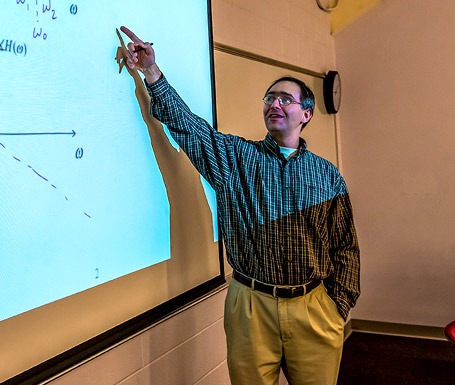
Dr. Mario Simoni
Dr. Mario Simoni, head of the department of electrical and computer engineering, is an innovative educator who stays on the leading edge of technical advances in electronics and electrical systems. He recently developed seven new courses for the department’s curriculum, and brought systems engineering concepts into the capstone design experience.
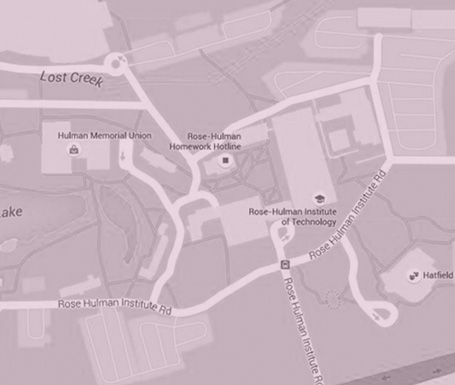
Contact Us
Moench Hall F105
5500 Wabash Avenue
Terre Haute, IN 47803
812-877-8228
lowe3@rose-hulman.edu


